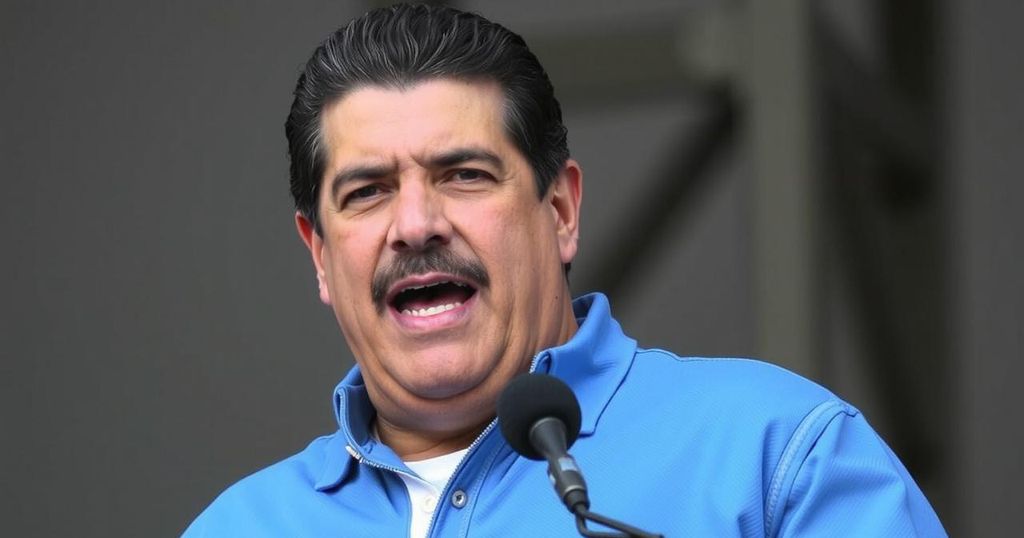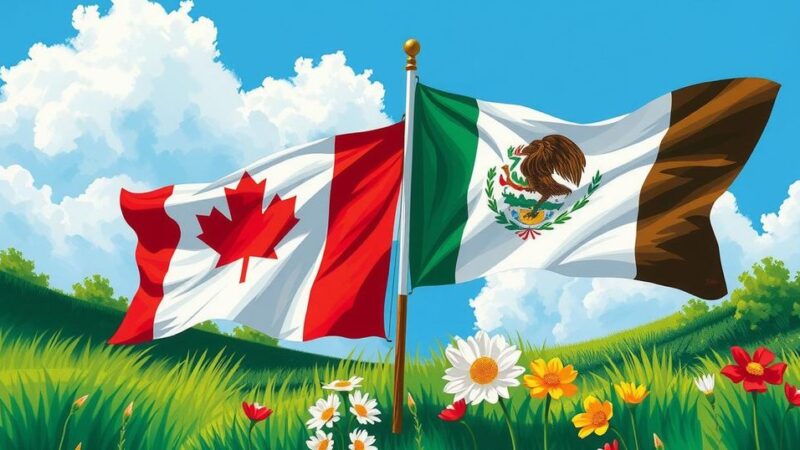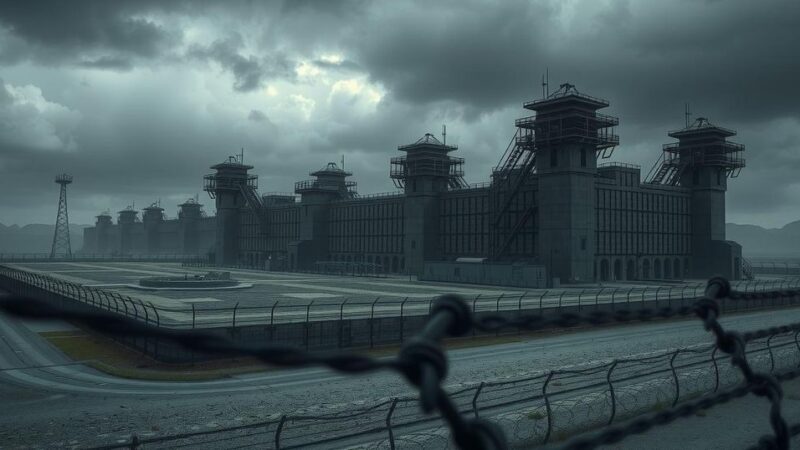Nicolás Maduro is set to begin his third term in Venezuela on January 10 despite allegations of a rigged election. Critics assert opposition candidate Edmundo González is the rightful winner, and fear persists among protesters following a brutal crackdown. The political dynamics are complicated further by the impending Trump administration and its potential approach to the Maduro regime.
On January 10, Venezuelan leader Nicolás Maduro will officially begin his third term in office, as the ruling party’s congress prepares for the swearing-in ceremony. This occasion occurs amidst widespread doubts about the legitimacy of the preceding election held on July 28 of the previous year. Critics both internationally and domestically have questioned the fairness of the electoral process, with reports suggesting that opposition candidate Edmundo González actually won by a significant margin, despite Maduro claiming victory by more than a million votes. The U.S.-based Carter Center, which was invited to monitor the election by Maduro’s regime, validated the legitimacy of the opposition’s tally sheets.
Jason Marczak, vice president and senior director of the Atlantic Council’s Adrienne Arsht Latin America Center, stated, “Maduro assuming another term on Friday is a blatant violation of the votes of the Venezuelan people. The published tally sheets back that up.” This further highlights the controversy surrounding Maduro’s continued presidency. Taking the oath of office allows Maduro to reinforce his current policies, which have contributed to severe issues in Venezuela, such as cronyism, rampant inflation, and widespread food insecurity.
In advance of Maduro’s inauguration, the opposition has planned mass protests; however, a heavy-handed government crackdown following the election, which resulted in over 2,000 arrests, has instilled fear that may suppress protestor turnout. María Corina Machado, a prominent opposition leader, is attempting to re-enter the political arena after months of hiding, hoping to rally support against Maduro’s regime.
Recognized by the United States as the legitimate president-elect, Edmundo González fled to Spain after a warrant for his arrest was issued. He has reemerged, actively seeking to garner international support for Venezuela’s opposition, and recently engaged with President Biden at the White House, describing their dialogue as positive. Gonzalez’s safety is jeopardized, as Venezuelan authorities have stated a $100,000 reward for information on his location, reiterating their intent to arrest him.
The political dynamics surrounding Maduro’s regime are further complicated by the upcoming Trump administration. Questions arise regarding how former President Trump will address the Maduro situation, especially considering their previously antagonistic relationship. Despite Maduro extending an olive branch to Trump, emphasizing a desire for a respectful dialogue, former Venezuelan diplomat Isaias Medina III warned, “The only negotiation between Trump and Maduro must be the liberation of Venezuela.” He highlighted criminal activities associated with Maduro’s regime, asserting that strong sanctions and decisive actions are necessary to safeguard regional stability and American security.
As the situation unfolds, some analysts speculate that the incoming Trump’s administration may shift tactics in addressing Venezuela, moving away from the aggressive strategies of their first term. There is a recognition that lessons must be learned from past policies, including the administration’s approach to migration, as millions have fled Venezuela since 2014. The incoming national security adviser, Rep. Mike Waltz, and other key officials are poised to impact the U.S. strategy toward Venezuela, advocating for support of the opposition while tightening sanctions on the Maduro regime.
The political landscape in Venezuela remains fraught with tension as Nicolás Maduro begins his third term amid accusations of electoral fraud. The opposing viewpoint, illustrated by Edmundo González’s recognition as president-elect by the United States, adds complexity to Maduro’s claim to power. The opposition’s response to Maduro’s alleged illegitimacy includes mass protests and clandestine efforts to rally support from the international community. The implications of U.S. foreign policy under a potentially re-elected Trump complicate the situation further, as the Maduro regime navigates its political survival amidst increasing dissent.
In conclusion, the inauguration of Nicolás Maduro for a third term underscores significant political strife in Venezuela, marked by allegations of election fraud and a repressive government response to opposition. The reaction from both domestic factions and international observers indicates a battle for legitimacy and governance in Venezuela. With potential shifts in U.S. foreign policy looming, the future of Venezuelan politics remains uncertain and critical.
Original Source: www.foxnews.com






